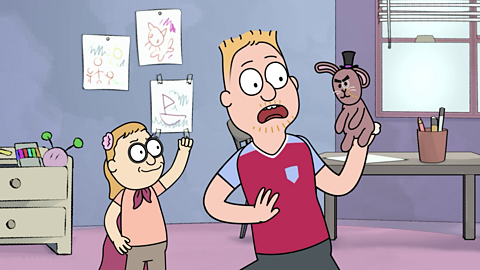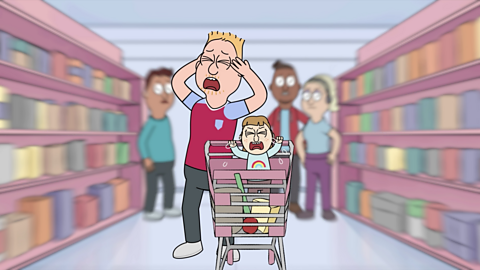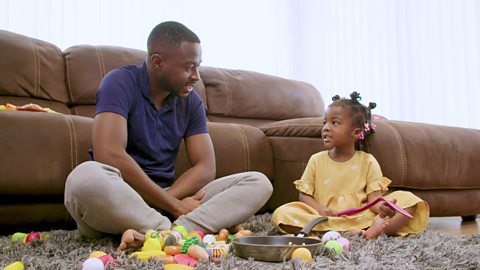You know that overloaded feeling you get when you're in a really busy shop, or when everyone's talking far too loudly?
Well imagine that feeling multiplied thousands of times. That's what having a sensory meltdown can feel like for a child.
But what is a sensory meltdown and what can parents do when they happen?
The video on this page has some great tips for parents to help them help their children if a sensory meltdown happens.
You know that overloaded feeling you get when you're in a really busy shop, or when everyone's talking far too loudly?
Well imagine that feeling multiplied thousands of times. That's what having a sensory meltdown can feel like for a child.
A sensory meltdown is very different to a tantrum. Tantrums often happen out of frustration. A sensory meltdown is an overload to the brain by too much stimulation from lights, sounds, sights, tastes, and textures. It's reacting to the environment, and it's often beyond their control.
A child to stop having a tantrum, usually when they get what they want. A meltdown won't stop because of this. A child having a sensory meltdown often wants quiet and calm. But how can you manage this when everything is so sensitive?
You being calm can help your child calm down.
During a meltdown they won't be able to take in too many words, so encourage and show them how to breathe in and out slowly. If possible move your child away from the environment they're reacting to.
Can you find somewhere gentler on their ears, eyes, and other senses? Somewhere quieter and less busy with lower lighting.
Think about environments that may be over-stimulating and plan for them, or when routines change, or going to a crowded place, such as a shopping centre. Tell your child in advance that it might be noisy, ask them to say if it's getting too much, and bring along their favourite cuddly toy.
It's difficult, especially when a meltdown happens in public. But remember, this is not your child behaving badly, so cut yourself a break.
What is a sensory meltdown?
Although it can look like a temper tantrum, a sensory meltdown is when a child reacts to overstimulation through sights, sounds, tastes, textures and sounds.
It’s not behaviour that can be controlled or stopped through better understanding of their feelings and emotions, instead it’s a reaction to the environment around them.
A good way to understand it is to think of times when you’ve felt overwhelmed by a busy, loud, bright, smelly environment. Imagine what that is like but far, far more intense, as you experience these things for the very first time and are still trying to make sense of the world around you. This is how it feels for a child having a sensory meltdown.
Where do sensory meltdowns happen?
All sorts of situations can lead to sensory meltdowns: parties, fireworks displays, changes of routine or even just too many changes of activity in a short space of time.
What do sensory meltdowns look like?
All children react differently, but behaviour you might see during a sensory meltdown includes children covering their eyes or ears or shutting down and refusing to move.

3 top tips for helping children cope with sensory meltdowns
1. Stay calm
You being calm can help your child calm down.
Encourage them and show them how to breathe in and out slowly.
2. Move your child to somewhere comfortable
- Can you find somewhere gentler on their ears, eyes and other senses?
3. Prepare for difficult situations
Plan for environments that might be overstimulating, like trips to the shopping centre.
Tell your child in advance that it might be noisy, ask them to say if it’s getting too much and bring along their favourite cuddle toy.

Check out our article on looking out for your child's mental health for more information on this subject.
If you are concerned about your child's mental health, you could try speaking to your GP or health visitor. You could also visit the 91Čȱ¬ Action Line page to find organisations that can offer more information and advice.
Created with help from child psychologist Dr Claire Halsey and child development researcher Dr Michelle Lowe.






